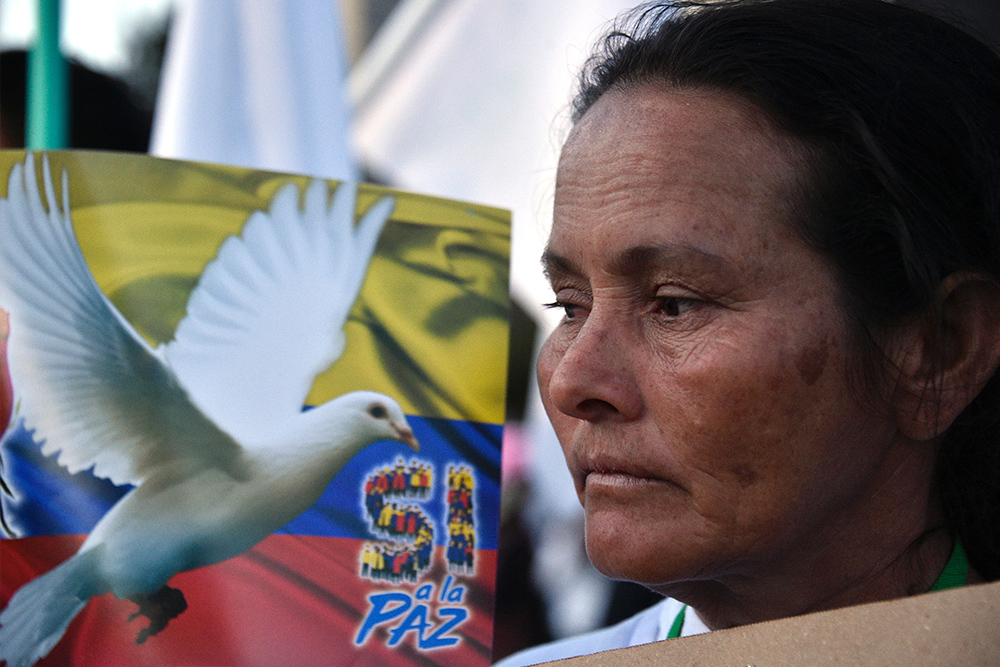PeaceRep evidence on Women, Peace and Security (WPS) has been published by the International Development Committee (IDC) of the UK Parliament.
Earlier this year, the cross-party committee of MPs issued a call for evidence on how the WPS agenda is being incorporated into UK aid programmes, amid plans for the UK’s aid budget to be cut to 0.3% of GNI by 2027.
PeaceRep’s evidence has now been published alongside 38 submissions to the Committee. Taken together, the submissions form a valuable contribution to public discourse and parliamentary deliberation on WPS.

International Development Committee Publishes PeaceRep Evidence on WPS
PeaceRep evidence
PeaceRep’s submission sets out contemporary challenges in global WPS adherence and uses data from the PA-X Gender database to outline recent trends in gender provisions in peace agreements. The submission suggests ways of assessing the UK’s progress in meeting its 2023 National Action Plan (NAP) commitments to inclusive peace processes.
The submission also outlines the ways that PeaceRep incorporates WPS principles across its ODA-funded programming to support women’s participation in peace processes, including:
- Building gender dimensions of conflict and peace and transition processes into field-based research design and informing policy-level discussions with comparative country data.
- Regularly providing research and data to senior WPS stakeholders on gender-responsive peace agreements.
- Directly supporting women’s participation in peace processes through convening high-level networks of women mediators, negotiators, and constitution-makers from conflict-affected places to advance thinking on peace process themes, and to provide peer-to-peer spaces for women peacemakers.
- Delivering structured courses and tailored trainings on women’s participation in peace processes for peacebuilding professionals.
Finally, the authors offer recommendations on supporting women in peace processes and implementation of the NAP Strategic Partnerships: UK Capabilities.
PeaceRep’s submission draws on the expertise of lead author Laura Wise, PeaceRep Senior Research Fellow, with input from co-authors Allyson Doby, PeaceRep Communications Manager, and Robert Wilson, PeaceRep Research Fellow and Policy Coordinator.
Lead author Laura Wise said,
Our evidence to the International Development Committee shows that women peacebuilders are facing huge challenges to influence fragmented peace processes amid escalating conflict and a global gender backlash. The evidence published by the Committee demonstrates experts’ widespread concerns about the UK Government’s ability to maintain its position as a global WPS leader whilst cutting funding for programming that supports women’s meaningful inclusion and diverse peacemaking. A refreshed UK Government National Action Plan is an opportunity to course correct, and to recognise that in an increasingly violent world, women peacemakers need support, rather than retrenchment.
WPS at 25
The IDC inquiry coincides with the 25th anniversary of the global Women, Peace and Security (WPS) agenda set out in UN Security Council Resolution (UNSCR) 1325. The UK’s plans for implementing the WPS agenda are set out in the UK Women, Peace and Security National Action Plan (NAP) 2023–2027, which sets out the UK ‘s commitment to reduce the impact of conflict on women and girls and promote their inclusion to prevent and resolve conflict. A revised version of the NAP is scheduled to be published by the end of 2025.
Further Reading:
Read PeaceRep’s submission in full